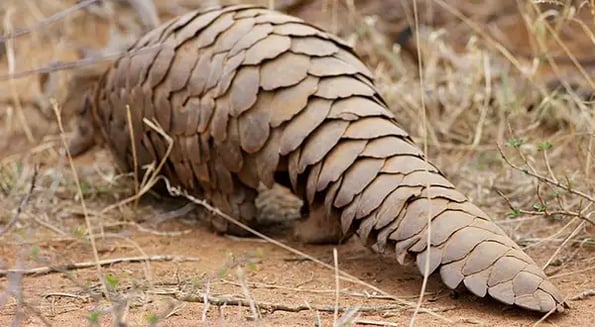Pangolins, whose scales are prized for their supposed medicinal value, are the world’s most trafficked mammal (if you’re trying to remember WTF a pangolin looks like, it’s the Pokémon “Sandshrew”).

But despite a ban on the trade of pangolin scales — which can sell for as much as $3k per kilogram on the black market — that underground business is thriving, according to recent trade reports.
A badly executed ban
After pangolins were identified as the most-trafficked animal in the Asian wildlife black market in 2014 (accounting for as much as 20% of all wildlife trade), the exchange of pangolin scales was formally banned. Now, anyone who owns scales must have a permit.
But this week, trade authorities in Hong Kong (which is the gateway to the massive Chinese market) identified a worrisome permit discrepancy.
The scales don’t add up
Hong Kong authorities know that 14.2 metric tons of pangolin scales were imported in the 2 years prior to the trade ban, but only one owner has applied for the required permit, for 350 kg worth of scales.
That means that the remaining 14 tons of scales, which could theoretically have been monitored, likely slid right back into the black market.
But these 14 tons of scales in Hong Kong are just the tip of the iceberg: In the first 5 months of this year, authorities across Asia have confiscated 30 metric tons of smuggled scales — signaling that regulation has done little to reduce the massive scale of the global pangolin market.

